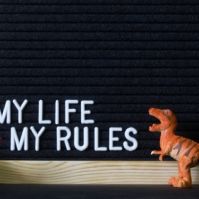 Many people, as they enter the new year, have vague goals for themselves. “Lose weight,” “make more money,” “change jobs,” “drink less,” “exercise more,” and “quit smoking” all make the top 10 list of the most common New Year’s resolutions uttered year after year. While there is nothing wrong with any of those goals, they’re indicative of the fact that most members of society want to become better versions of themselves. Unfortunately, because the goals are so vague, many often give up on their resolutions two to three months into the new year. If you’re serious about bettering yourself in 2020, consider going with a New Year’s resolution that is simple yet life-changing: Be kind.
Many people, as they enter the new year, have vague goals for themselves. “Lose weight,” “make more money,” “change jobs,” “drink less,” “exercise more,” and “quit smoking” all make the top 10 list of the most common New Year’s resolutions uttered year after year. While there is nothing wrong with any of those goals, they’re indicative of the fact that most members of society want to become better versions of themselves. Unfortunately, because the goals are so vague, many often give up on their resolutions two to three months into the new year. If you’re serious about bettering yourself in 2020, consider going with a New Year’s resolution that is simple yet life-changing: Be kind.
The Power of Kindness
Philosophers. Spiritual leaders. Poets. Role models. For centuries, these and other individuals have been touting the power of kindness, calling it “healing,” “uplifting” and “strengthening.” When you look back on moments in which you gave and received kindness, you can agree that it’s difficult not to smile and soften to the memory. Why is this though? What is it about acts of kindness that make a person vulnerable, and not to evil and hatred, but to love and acceptance? Apparently, science plays a major role in why and how the human body reacts to kindness.
The Science Behind Kindness
When a person performs an act of kindness, he or she is likely to feel warm and fuzzy inside, a phenomenon science has dubbed the “helper’s high.” This feeling begins in the brain’s reward center and is believed to be among one of the top motivations of prosocial behavior in humans, thereby priming our species for the evolution of language.
When the reward center becomes activated, you won’t just feel good — you will actually experience a boost in your physical and emotional well-being. At the most basic level, kindness helps you meet your most basic psychological needs of belonging and connectivity. This, in turn, increases your mood and satisfaction with life. All these feelings combined have a chemical effect.
When you’re happier, your brain produces more oxytocin and serotonin, two natural chemicals that reduce anxiety while increasing feelings of trust. For teenagers and younger individuals, these feelings can boost self-esteem and relationship satisfaction. For elderly individuals, they can contribute to prosocial behavior, which is proven to increase life expectancy.
The Key to Kindness Is in You
There are many ways to spread kindness, including giving it to others. However, research shows that for kindness to truly take hold, individuals must first learn to be kind to themselves.
People are often so unkind toward themselves, making disparaging remarks about their weight, jobs, intelligence, etc. Too many individuals live in the past or mired in the future, which they either have regrets or reserves about. They continually compare themselves to others, only noticing how they don’t stack up. This attitude about not being enough keeps so many people from accepting the kindnesses given to them and, therefore, from paying the kindness forward.
You can change that cycle by learning to be kinder to yourself. Start by treating yourself as you would others — with kindness, understanding and unconditional love. Recognize that you are not the only person to feel scared, alone, confused, overwhelmed or what have you. Pain and suffering is something all humans experience, but it doesn’t have to be permanent. Finally, practice mindfulness. Live in the moment. Take your negative experiences as what they are — life lessons — and learn from them, but do not let them define you.
When you learn to be kinder to yourself, you’ll notice other positive changes, such as increased resilience, a healthier stress response, reduced depression and anxiety and, above all, increased happiness. The rest, such as your ability to pay it forward, will follow.



